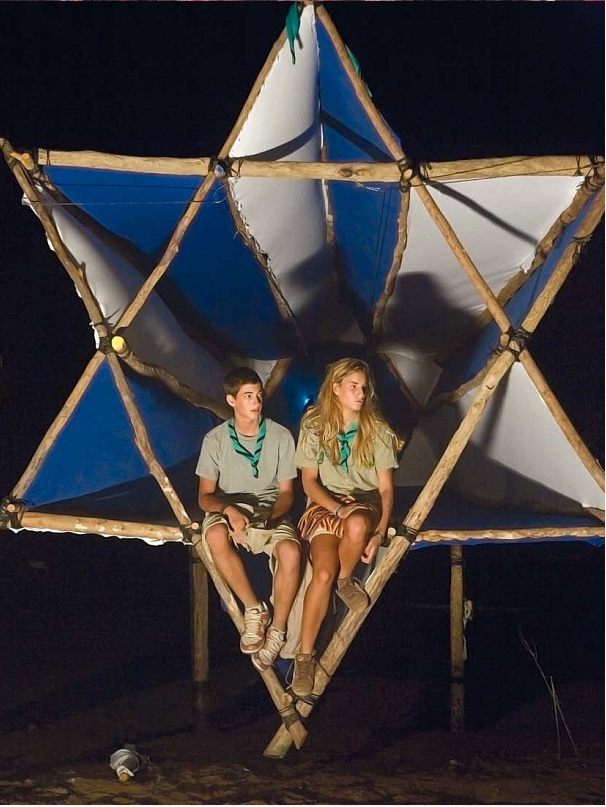“Have a happy Nakba”, proclaimed the poster held by the right-wing activists who greeted us at last week’s annual commemoration of the Deir Yassin massacre. For years Israeli society has silenced and denied the Nakba and its own responsibility for its consequences, but in recent years the Nakba’s presence has grown: the Nakba Law; demonstrations against Nakba commemoration ceremonies during which the rightists sing “Heveinu Nakba aleichem”; and dozens of articles in the Israeli press. The Nakba’s presence, despite the fact that most references to it express apprehension and dread, provides educators with many opportunities to include it in their teaching. It allows us to learn about new aspects of our history and identity which have been silenced.
The Nakba challenges the foundations on which we grew up and were educated. Teaching it undermines the act of erasing it from Israeli history. We believe that studying the Nakba, learning about it, has the potential to create a future of reconciliation and education for critical civic involvement.
The Nakba is the Palestinians' disaster as well as the story of Jews in Israel. The Nakba is a foundational event for both Palestinians and for Israelis. Destruction of Palestinian localities, ignoring and erasing Palestinian history and culture, the construction of a collective memory glorifying Israeli victimhood and denying that of the Palestinians, continued dispossession, killing, destruction, racism, discrimination, segregation and military occupation – all are the direct result and continuation of the 1948 events. To understand and transform the present it is necessary to learn about and teach the past. In doing so, complicated questions arise: How can we present a story that’s so different from the one we’re familiar with and often opposed to? How can we cope with fears and questions about our own identity which arise when we learn about the Nakba? How can we develop critical tools to evaluate (what for us has now become) a new account? And how can a comprehensive, complex account be created? How can we deal with the racism and violence toward what’s seen as foreign and threatening?
Learning about the Nakba provides an opportunity for humanistic education and encouraging critical teaching in a framework that enables appreciating the complex reality. Such education involves a dialogue between what we know about the Palestinians and what we don’t; between what we know about ourselves and what we don’t; between the past, present and future. Such education creates an opening, a crack that allows us to appreciate complexity, to think critically and creatively about our lives here and the opportunities for a better future.
Teachers who’ve taught the Nakba report that exciting processes have taken place in their classes. The process often begins with total rejection, an attack on the story as biased, and then slowly students begin to reconsider what they had believed were great, sweeping truths and start listening, both to one another in the classroom and to the history of the Nakba and to Palestinian refugees. This is how one student summed up a number of lessons about the Nakba: “I feel I’ve grown intellectually; I now try to understand all sides of stories I hear, which didn’t used to happen. I’d hear something and immediately judge.” Another pupil wrote: "I learned much that was new about the War of Independence. I knew we had won – because we celebrated it. But I didn’t know about the Arabs’ Nakba! The lessons made me think also about the Arab side, not only about ours.”
Learning about the Nakba offers an alternative to common, widespread oppositional conceptions (friend-foe, black-white, Arab-Jew, ruler-ruled). Despite the difficulties and many objections from the establishment and our social environment, the purpose of learning isn’t to exchange one doctrine for another but to seek information, the truth, and also to understand the social and political reasons for its denial. Who denies it to Israeli society? How could it be reclaimed? Thus, learning about the Nakba represents a call to action and accepting responsibility by teachers and students alike, opening the way to building different relationships between us and the Palestinians – based on respect, acknowledgement and empathy, on possibilities for cooperation and hope.
On April 29, 2013, Zochrot will hold a learning day on the Nakba Day that will include lectures, presentation of a lesson plan and pedagogical materials useful for teaching about the Nakba Day.
Please contact us for additional information and registration at education@zochrot.org.



